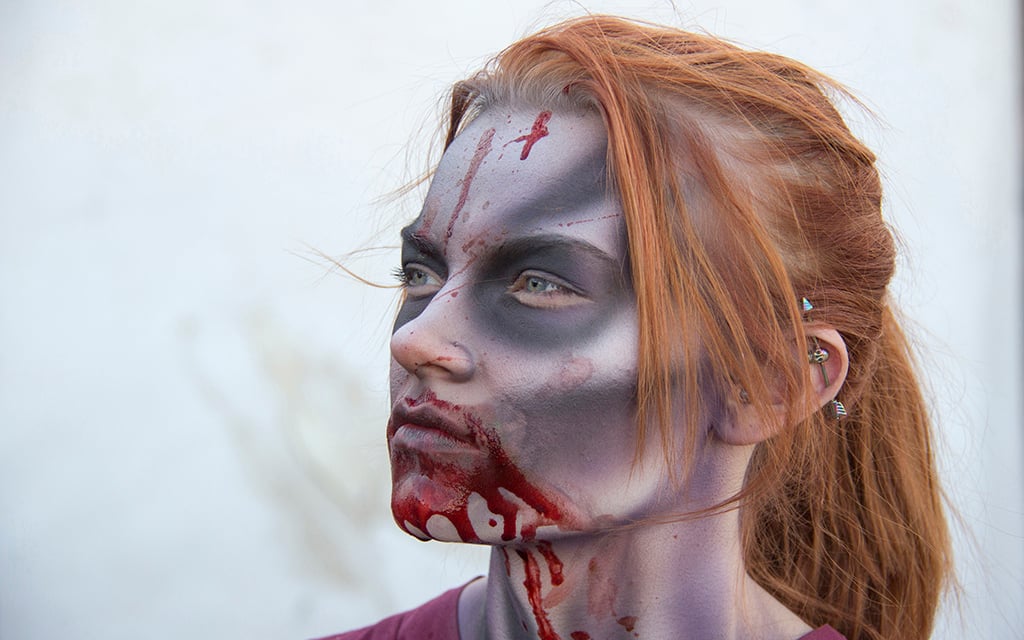(Audio by Lizeth Adriana Calderon/Cronkite News)
PHOENIX – Halloween is a fun, spooky holiday for many, but for those living with dementia, it can be frightening. Halloween can cause sensory overload and disrupt the routine for people with dementia, said Shannon Lindemer, senior psychometrist with public health program Nosotros Comprometidos a Su Salud.
Sensory overload happens when the brain gets overwhelmed by too much information from the five senses: sight, smell, taste, touch and sound.
“Seeing people that are in costumes, especially people that they do know … can be really confusing or scary for them because they might see unfamiliar characters as real. So if you come at them as a ghost, they might think you’re really a ghost. …That can be unsettling … because routine is really important to keep them as steady as possible,” Lindemer said, noting noise, sudden surprises, trick-or-treaters and decorations can also be overwhelming.
Dementia is a degenerative condition that affects thinking, memory and reasoning. Alzheimer’s disease is a specific type of dementia that impacts how people think, remember and behave.
In Arizona, 150,000 individuals have Alzheimer’s, according to the Alzheimer’s Association. There are 254 memory care communities in the state, according to U.S News Health.
Chris Daroczy, executive director of senior housing at Fountain View Village in Fountain Hills, said Halloween can be challenging for those in the middle to late stages of Alzheimer’s. The community avoids costumes or decor that might cause panic, anxiety or stress. “We focus on making Halloween worry- and stress-free. We avoid any scary movies and any TV programming that has horror,” Daroczy said.
According to the American Health Care Association, there are more than 30,000 assisted living communities in the U.S., with over 42,000 beds in communities in Arizona. Julie Jones, who works in the memory care program at the Fountain View Village, said every caregiver working with this population should be properly trained. “It’s not one size fits all. … We have to change according to each individual.”
Jones makes sure Halloween activities are comforting for her patients.
“They love the fall, so they love the pumpkins and the leaves … but you start getting dark into bats and things like that, they are not comfortable,” Jones said.
Rosie Lind, director of assisted living and memory care at Fountain View Village, said maintaining usual routines during the holiday helps her patients to remember things, which is important to minimize stress.
She also advised families to avoid frightening costumes and flashing lights when taking their loved ones with dementia out and to stay with them while they interact with trick-or-treaters.
“They don’t like things that jump out at you and make noises and … that can cause them to … get anxious,” Lind said.


